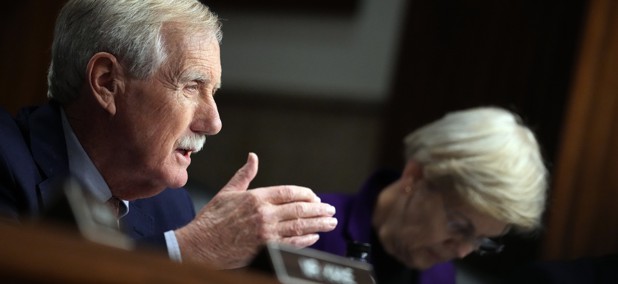Concerns have emerged among U.S. senators regarding a recent policy from the Pentagon that may restrict communication between defense personnel and Congress. On October 15, 2023, a memo signed by Defense Secretary Pete Hegseth indicated that officials must seek prior approval before engaging with lawmakers. This policy has been described as potentially detrimental to transparency and collaboration between the military and Congress.
During a Senate Armed Services Committee hearing on Tuesday, Senator Angus King of Maine expressed his apprehension about the implications of the new directive. As the ranking member on the committee’s strategic forces panel, King emphasized the importance of open lines of communication. “I’m concerned about the October 15 memo from the secretary, which basically throttles communication between people working at the Pentagon and Congress, including this committee,” he stated. He highlighted that such restrictions could hinder necessary discussions on policy and legislative matters.
Senator Roger Wicker, a Republican from Mississippi and the committee chair, echoed King’s sentiments. He acknowledged that the memo might have been misinterpreted and suggested that clarification may be required. “It has been suggested that that memo was misconstrued, and it may need to be clarified. So, thank you for bringing that up,” Wicker remarked during the hearing.
The memo, first reported by Breaking Defense, mandates that all communications between the Department of Defense (DOD) and Congress be routed through the Pentagon’s central legislative affairs office. It warns that “unauthorized engagements” could undermine important department priorities and exacerbate tensions between the Pentagon and Capitol Hill.
Both Republican and Democratic lawmakers have voiced strong objections to this policy shift, arguing that it could obstruct the Pentagon’s legislative objectives. Senator Thom Tillis from North Carolina criticized the directive, stating, “You’ve got to trust your chain of command. This is too large of an organization to have that kind of a tight clamp on it, particularly when we have members [of Congress] that want specific answers, not going through protocol.” He highlighted the need for more direct communication channels between military leaders and congressional representatives.
The senators’ concerns reflect a broader apprehension regarding the potential impact of this policy on the relationship between the military and legislative bodies. As discussions continue, it remains to be seen how the Pentagon will address these issues and whether any adjustments to the memo will be made to facilitate better communication.
In conclusion, the recent policy change by the Pentagon has raised significant questions about communication protocols with Congress, stirring bipartisan concern among lawmakers. As the situation develops, the implications for military oversight and legislative collaboration will be closely monitored by both defense and political analysts.






